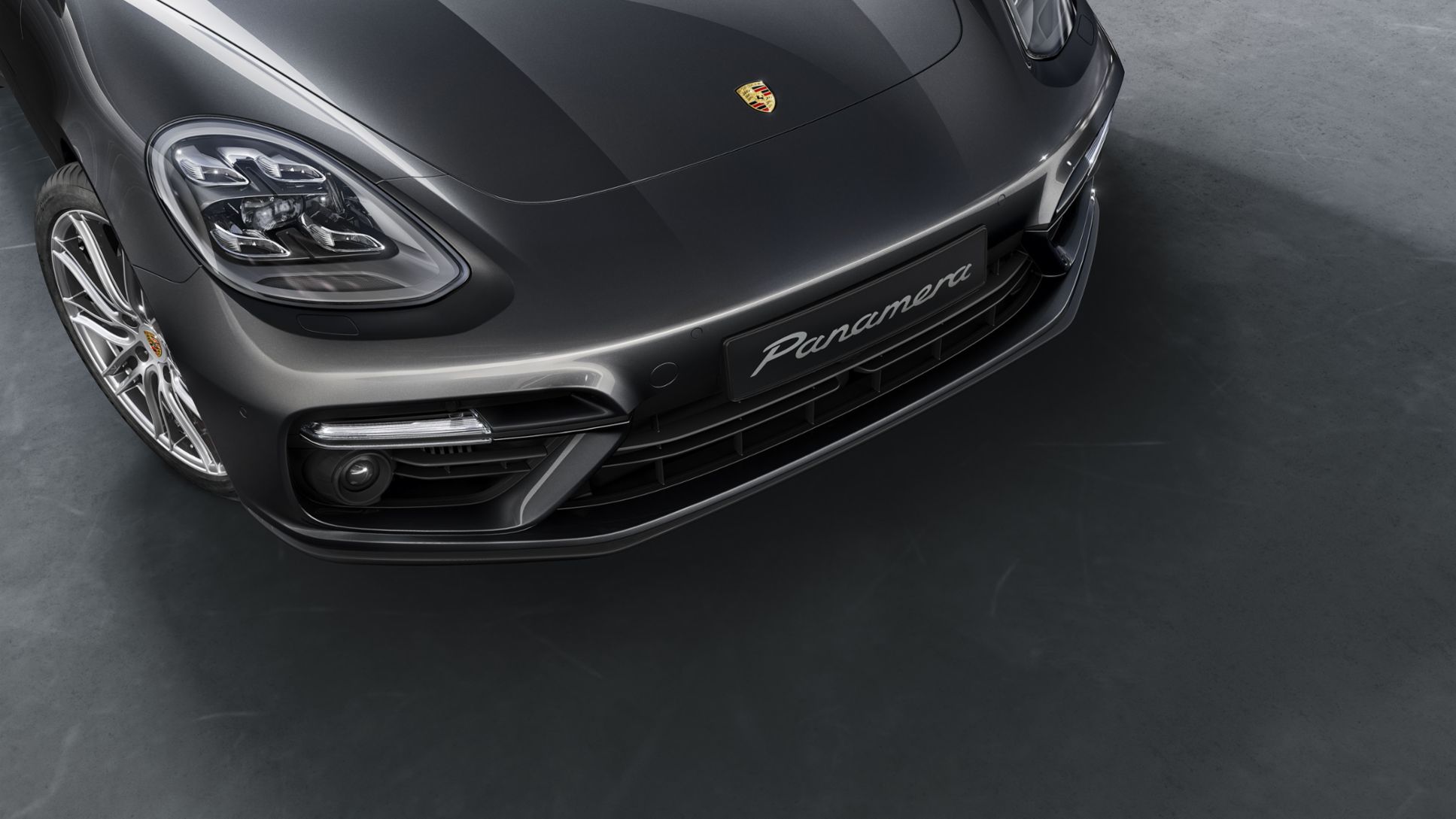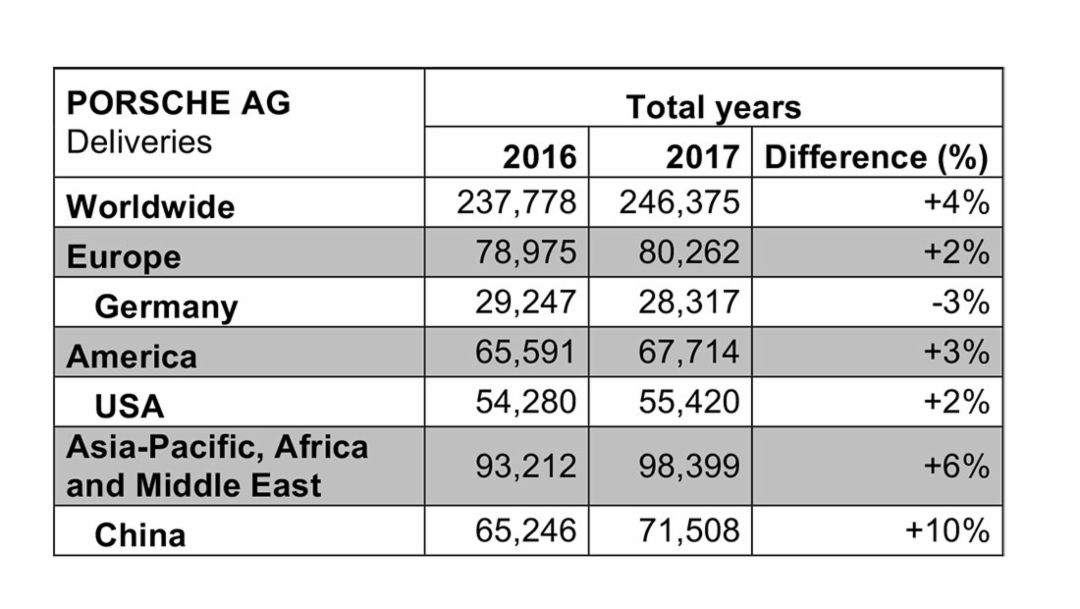“The hybrid models of the new Panamera in particular are very well received by customers, validating our product strategy. The Turbo S E-Hybrid, as the top model in the line, is a clear embodiment of performance and efficiency. It sets new benchmarks in its class”, says Detlev von Platen, Member of the Executive Board responsible for Sales and Marketing at Porsche AG. Von Platen is also optimistic regarding 2018: “With our product range and the strong sales regions of Europe, America and Asia, we are well positioned.”
In addition to the Panamera, the 718 models have also significantly exceeded the previous year’s figures. Around 25,000 of the mid-engine sports cars were delivered, marking an increase of six per cent. The fascination with the 911 also lives on: In 2017, more than 32,000 vehicles were once again handed over to customers worldwide. The Macan is the best-selling Porsche and maintains the high figures from the prior year with more than 97,000 vehicles delivered (+2 per cent).
High level of stabilisation in 2018
China remains the largest single market for Porsche: With more than 71,000 vehicles delivered, the previous year’s figure was exceeded by ten per cent. The figures for the USA (+2 per cent) and Europe (+2 per cent) continue to build on the success of previous years. With around 28,300 deliveries, the home market of Germany lies just short of the figure for 2016. “In 2018, the new Cayenne is being launched in the key sales regions that are the USA and China – this promises further growth”, von Platen continues. “Nonetheless, the exclusivity of the brand will continue be our top priority in future.” The aim for 2018 is to stabilise figures at the high levels achieved in 2017.
Consumption data
Panamera Turbo: Fuel consumption combined 9.4 – 9.3 l/100 km; CO2 emissions 214 – 212 g/km
Panamera Turbo S E-Hybrid: Fuel consumption combined 2.9 l/100 km; CO2 emissions 66 g/km; electricity consumption (combined) 16.2 kWh/100 km
Panamera Hybrid Modelle: Fuel consumption combined 3.0 l/100 km; CO2 emissions 69 g/km; electricity consumption (combined) 17.6 kWh/100 km

